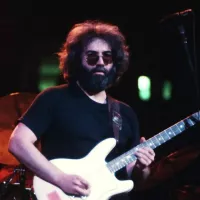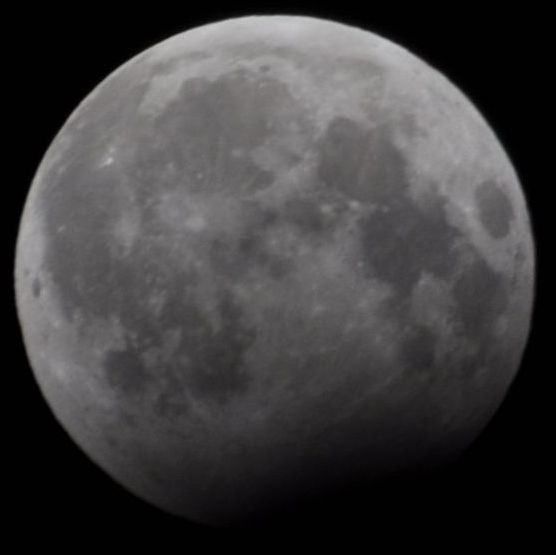Discover the career path of John Fogerty, from the first major opportunity to industry-changing achievements.
John Fogerty is an American musician best known as the lead singer, lead guitarist, and principal songwriter for the band Creedence Clearwater Revival (CCR). He co-founded CCR with Doug Clifford, Stu Cook, and his brother Tom Fogerty. CCR achieved significant success between 1968 and 1972, with nine top-10 singles and eight gold albums. The band was inducted into the Rock and Roll Hall of Fame in 1993, cementing Fogerty's legacy as a prominent figure in rock music.
1959: Formation of The Blue Velvets
In 1959, John Fogerty formed a cover band called the Blue Velvets with Stu Cook and Doug Clifford while in junior high school, drawing inspiration from rock and roll pioneers.
1964: The Blue Velvets Sign with Fantasy Records and Become The Golliwogs
In 1964, The Blue Velvets signed with Fantasy Records, which changed the band's name to The Golliwogs without their consent.
1966: Draft Notice and Army Reserve Enlistment
In 1966, John Fogerty received his draft notice for military service during the Vietnam War and promptly enlisted in the United States Army Reserve.
July 1967: Completion of Active Duty
In July 1967, John Fogerty completed his six months of active duty service in the Army Reserve.
1968: CCR's Success
In 1968, Creedence Clearwater Revival began its successful run, achieving nine top-10 singles and eight gold albums by 1972.
1968: Formation of Creedence Clearwater Revival and Debut Album
In 1968, after Fogerty's active duty ended, The Golliwogs changed their name to Creedence Clearwater Revival. John Fogerty replaced his brother as the lead singer, and the band released their debut album and their first hit single, "Susie Q".
1968: Early Discharge from the Army Reserve
In mid-1968, John Fogerty was granted an early discharge from the Army Reserve after attempting to sabotage his fitness for service.
January 1971: Tom Fogerty Leaves CCR
In January 1971, Tom Fogerty left Creedence Clearwater Revival due to internal rifts and feeling underappreciated.
April 1972: Release of 'Mardi Gras' and Subsequent Disbandment
In April 1972, Creedence Clearwater Revival released their final album, 'Mardi Gras', which included the hit singles "Sweet Hitch-Hiker" and "Someday Never Comes". Despite poor reviews, the album was commercially successful. The group disbanded shortly after its release.
1972: CCR's success and breakup
By 1972, Creedence Clearwater Revival had achieved nine top-10 singles and eight gold albums, marking a period of success before the band parted ways later that year.
1972: Last Time Performing CCR Songs
In 1972, It was the last time John Fogerty had performed any Creedence Clearwater Revival songs for a large audience until 1987
1972: Fogerty's Solo Career
In 1972, after Creedence Clearwater Revival disbanded, John Fogerty began his solo career.
1973: Release of 'The Blue Ridge Rangers'
In 1973, John Fogerty, under the name The Blue Ridge Rangers, released the eponymous album 'The Blue Ridge Rangers', which featured the hit single "Jambalaya" and a lesser hit "Hearts of Stone".
1974: Release of "Comin' Down The Road"
In early 1974, John Fogerty released the single "Comin' Down The Road" backed with the instrumental "Ricochet".
1975: Release of 'John Fogerty' Album
In 1975, John Fogerty released his first official solo album, 'John Fogerty', which had slim sales but yielded the song "Rockin' All Over the World".
1976: Rejection of "Hoodoo" Album
In 1976, John Fogerty finished an album called "Hoodoo". It was ultimately rejected by Asylum Records due to quality concerns. Fogerty later had the master tapes destroyed.
1977: Status Quo Records "Rockin' All Over the World"
In 1977, the British rock band Status Quo recorded their version of John Fogerty's "Rockin' All Over the World", which became a hit in the UK and other countries.
May 31, 1985: Filming of John Fogerty's All-Stars
On May 31, 1985, John Fogerty filmed a one-hour music and interview special for Showtime called 'John Fogerty's All-Stars', featuring rhythm and blues tunes, material from the Centerfield LP, and the song "No Love in You".
1985: Release of 'Centerfield' Album
In 1985, John Fogerty's solo career re-emerged with the release of 'Centerfield', his first album for Warner Bros. Records. The album topped the charts and included the hit "The Old Man Down the Road".
1986: Appearance at Rock and Roll Hall of Fame induction ceremony
In 1986, John Fogerty made a guest appearance at the Palomino and performance at the Rock and Roll Hall of Fame induction ceremony
1986: Release of 'Eye of the Zombie'
In 1986, John Fogerty released the album 'Eye of the Zombie', which was less successful than its predecessor. He toured to promote the album but initially refused to play any CCR material.
July 4, 1987: Fogerty Plays CCR Material at Vietnam Veterans Concert
On July 4, 1987, John Fogerty performed Creedence Clearwater Revival material at a concert in Washington, D.C., for Vietnam veterans, which was broadcast on HBO. It was the first time he had played CCR songs for a large audience since 1972.
May 27, 1989: Concert Against AIDS
On May 27, 1989, John Fogerty played a set of Creedence Clearwater Revival material at the Oakland Coliseum for the Concert Against AIDS, backed by Jerry Garcia, Bob Weir, Randy Jackson, and Steve Jordan.
1990: Inspiration from Robert Johnson and Mt. Zion Memorial Fund
In 1990, John Fogerty visited Mississippi and drew inspiration from Robert Johnson's gravesite. He met Skip Henderson and subsequently funded headstones for blues musicians through the Mt. Zion Memorial Fund.
1993: Creedence Clearwater Revival's Induction into the Rock and Roll Hall of Fame
In 1993, Creedence Clearwater Revival was inducted into the Rock and Roll Hall of Fame. John Fogerty refused to perform with former bandmates Stu Cook and Doug Clifford, instead performing with session musicians and guests like Bruce Springsteen and Robbie Robertson.
2009: Inclusion of "Change in the Weather" on Tour and Re-recording
In 2009, after over 20 years of not playing material from the 'Eye of the Zombie' album, John Fogerty included "Change in the Weather" in his tour setlist. He also re-recorded it for his solo release, 'The Blue Ridge Rangers Rides Again'.
Mentioned in this timeline
Home Box Office HBO is an American pay television service...
The United States of America is a federal republic located...

Jerry Garcia was an American musician best known as the...

A blue moon is defined in several ways most commonly...

Bruce Springsteen known as the Boss is a highly influential...

Washington D C is the capital city and federal district...
Trending
3 months ago Hawaiian Airlines to adopt Alaska Airlines flight codes after 95 years of 'HA'
4 months ago Colorado I-70 Traffic Gridlock: Georgetown Reopens After Leaf-Peeping Blockade and Delays.

3 months ago Belinda Bencic Advances in Hong Kong, Eyes WTA Title at Hong Kong Open

7 months ago Brokeback Mountain's 20th Anniversary: Challenging Hollywood and impacting audiences, starring Heath Ledger.

3 months ago Rose Bowl Sues UCLA over Alleged Attempt to Move Games to SoFi Stadium.

3 months ago Tereza Valentová Praised by Coco Gauff as a Potential WTA Tour Threat
Popular

Thomas Douglas Homan is an American law enforcement officer who...

Martin Luther King Jr was a pivotal leader in the...

XXXTentacion born Jahseh Dwayne Ricardo Onfroy was a controversial yet...

Instagram is a photo and video-sharing social networking service owned...

KFC or Kentucky Fried Chicken is an American fast-food chain...
Curt Cignetti is an American college football coach currently the...